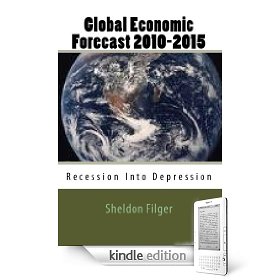Economics is a social science, not an exact science. Theories on how a nation’s economy and financial system should function proliferate the body politic, ranging from Reagonomics to Keynesian pump-priming. However, as the past year’s global economic crisis has demonstrated, dogmas and theories, such as market fundamentalism, are largely impotent in the face of brutal economic realities. It was not out of conformity with a particular economic dogma, but rather sheer panic, which drove key policymakers in major advanced and developing economies throughout the world to plunge their nations into unprecedented levels of public debt, all in a frantic effort aimed at halting the free fall collapse of the global financial system that had erupted after the downfall of the investment bank Lehman Brothers.
One year later, throughout the world and especially in the United States, political decision makers are proclaiming to their constituents that the worst of the economic crisis is behind us, “green shoots,” in the words of Fed Chairman Ben Bernanke, are starting to emerge, and the stock market has regained much of its losses. Yet, as Wall Street awards record bonuses to many of its stakeholders, unemployment in the U.S. and other developed countries continues to rise, while the credit crunch constricts small and medium size businesses. Amid the contradictory images regarding the Great Recession, I have written “Global Economic Forecast 2010-2015:Recession Into Depression,” http://www.createspace.com/3403422 , in which I look at the likely economic trends over the next 5 years. As the title suggests, my projection is not an optimistic one.
While the trillions of dollars poured into the global financial system by the United States and other sovereigns did prevent a total financial collapse in late 2008, this achievement has not come without a high cost, and growing danger. The level of public debt being accumulated by governments across the globe in response to the global economic crisis, and especially in the U.S., will reach a point of unsustainability, likely by 2012. This will occur simultaneously with continuing high rates of unemployment, which equates with weak consumer demand. The United States is dependent on the American consumer for at least 70% of GDP output. Overleveraged and underemployed consumers dampen growth prospects and retard government tax revenues. While public finances remain weak, policymakers will likely maintain stimulus spending programs, which translates into structural mega-deficits. The Congressional Budget Office is currently projecting a $9 trillion deficit over the next decade; based on the CBO’s past record, this is likely a lowball estimate.
In my look at the probable economic trajectory for the U.S. and other major economies over the next five years, I had to confront the strong possibility that amid America’s growing fiscal imbalance, there exists a serious danger of future shocks to the global financial system, which may possibly rival the implosion of the investment banks which occurred in 2008. During the next two years, $2 trillion in commercial real estate loans will come due. These were loans initiated when commercial properties were at their peak valuation, and largely securitized, as was the case with subprime loans that triggered the financial crisis in 2008. Should a commercial real estate implosion replicate the carnage that the banking system experienced in 2008, how will sovereign governments, the United States in particular, find the money to finance another financial system bailout? My conclusion is that it will not be mathematically possible for the U.S. and other governments to sustain a future rescue of the banking system. In essence, sovereign governments will become overwhelmed with public debt, reaching a point of fiscal collapse. The result will be sovereign insolvency, leading to a synchronized global depression.
In his farewell address to the nation in January 1961, President Dwight D. Eisenhower warned his countrymen about the long-term consequences of soaring public debt. Mortgaging the assets of future generations, Eisenhower believed, could transform today’s democracy into tomorrow’s “insolvent phantom.” In the midst of our current economic crisis, it would be wise to pay heed to the sage advice that President Eisenhower offered nearly half a century ago.

